April 2020
Italy has been shut down for the second month in a row due to the Covid-19 pandemic. Time and habits have been frozen. Nothing has changed that much in everyday life: April copied and pasted March, with people locked in their homes trying to get acquainted with a forced routine based on social distancing. Spring has come, but nobody had the chance to enjoy it. Plans for the immediate future have been erased.
Meanwhile, the coronavirus pandemic outbreak in the rest of the world had extended national quarantines and restrictions in any country, while the death toll dramatically rose everywhere. While the debate on how to fight the spread of contagion and the efforts to provide healthcare for sick people went on, governments and public opinion were focused on economic measures to handle a severe socio-economic disruption, which is leading the world to the worst global recession since 1929.
These pictures are a follow up of my previous report of my quarantine in my apartment in Torino, eagerly hoping that May will actually bring the rebirth of our lives.

During the first weeks of lockdown it was very hard to find masks, which are imported from China. I was able to buy them only in early April and that was a relief.
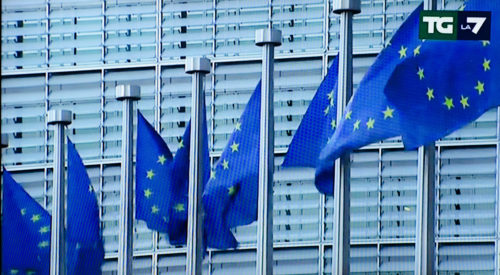
The general debate on possible measures to face the economic and social crisis was monopolized by the role of European Union in this situation. The coronavirus virus pandemic will be definitely a test for measuring the unity of the EU in terms of solidarity and accountability of its members.
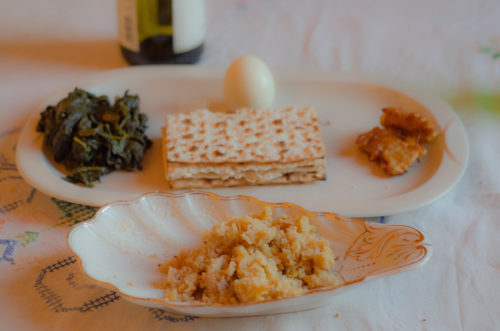
The holiest festivity for Jewish and Christian, respectively Passover and Easter, were celebrated at home without public functions and without sharing meals together as usual. Here, my personal Seder 2020.
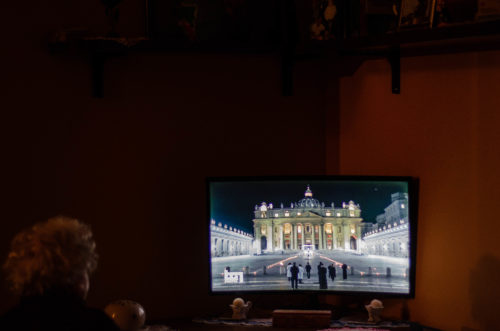
Easter celebrations were broadcast by national television. For the first time, the Pope celebrated the rituals in a deserted St. Peter’s square.

I was supposed to go to Salzburg for the Easter festival. Of course, any cultural event was canceled, but I got this program for the next year via mail. I consider this a good sign: let’s hope for the best, let’s hope that yesterday will get back tomorrow.
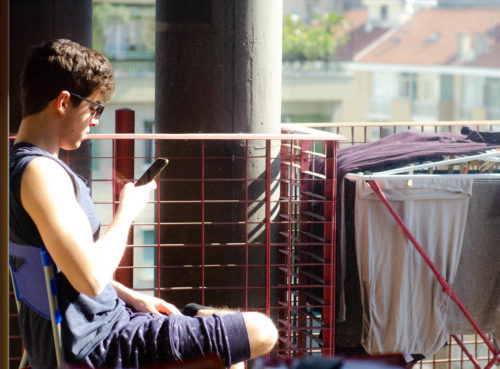
Spring came, but nobody is allowed to enjoy the sunshine. Here is my son on the balcony.
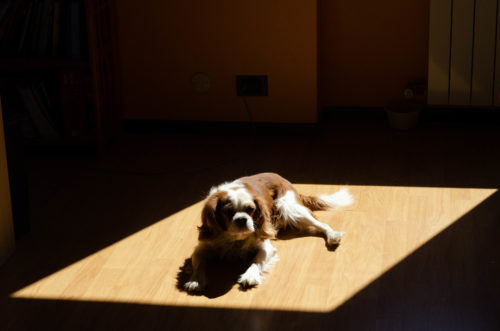
Dog enjoys indoor sunshine.
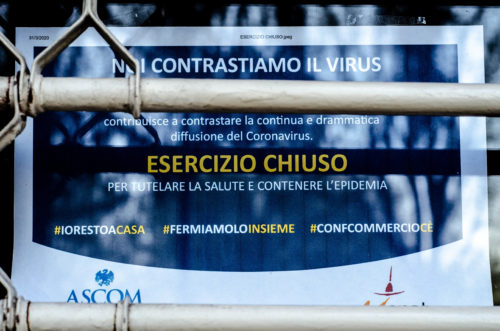
Local stores and shops highly suffered in lockdown. In late April, most were allowed to re-open only for delivery orders. When the best best pastry shop in my neighborhood re-opened, regular customers started to order their products to give them some support.
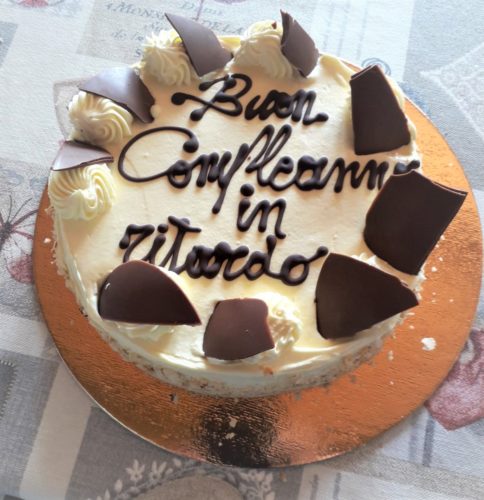
We celebrated my son’s belated birthday with a cake made by our local pastry shop, along with another favorite one, the Sacher torte.

First month in quarantine…
By late February, Northern Italy had been struck by the first cases of Covid-19. Some institutions, like schools and universities in that part of the country, were immediately shut down. During the following week, people were asked to avoid gathering and take the social distancing seriously.
“Everything scheduled in March has been canceled.”

In early March positive cases, the death toll, and patients at the ICU dramatically increased, and the entire country was put in lockdown. National quarantine implies restrictions in the movement of the population except for necessity, work, and health circumstances. Only some essential business and shops were permitted to open (namely pharmacies and groceries) — everything else was closed. Smart working was implemented and affected many workers, including those involved in the educational sector. Online classes spread from primary schools to universities. Digital learning design plays a crucial role in this transformation, as educators now focus on creating engaging and effective online learning experiences for students.
New dynamics emerged within households. In abusive or problematic relationships this situation may be a nightmare. Time has been reinvented. Meanwhile, many people have died alone in hospitals, many senior citizens passed away alone in their retirement homes, doctors and nurses are struggling to fight the right fight, and other essential workers are doing their job to allow others to get food and other necessities. Debates on the way of beating the beast are intertwined with discussions of the psychological consequences of social distancing, along with considerations about politics and freedom in a national as well as a global context.
These pictures are a way to testify to what has been going on during the first month of my quarantine in my apartment in Torino, closed in my safe shell, aware to have been lucky so far, and hoping for the best for everyone outside there, my human pals.

Books and chocolate are a must. Hand sanitizer and hand cream, quarantine requires washing hands every often so they are in every corner of the apartment.

Watching TV series is another must.

Gyms closed, workout at home via internet.

Son doing his daily workout.
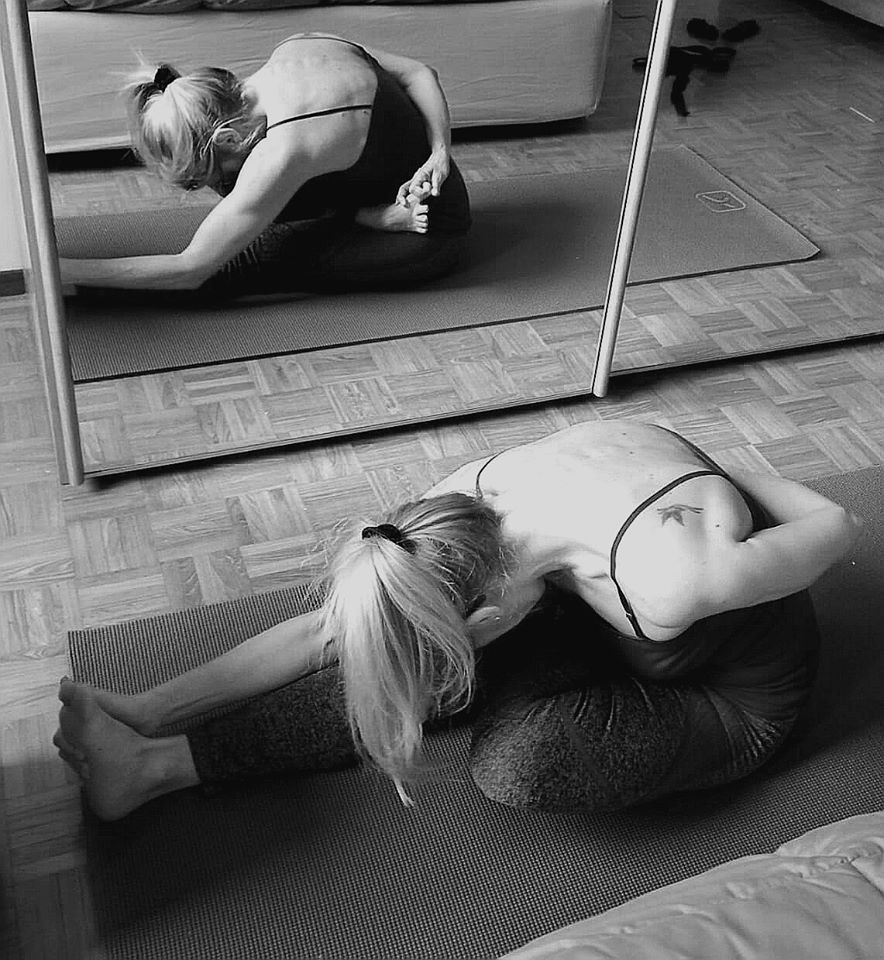
Yoga class via internet helps me with accepting the present and hoping for a better future.

Talmud Torah classes have been switched online. Ariel (who’s recording) is the chief Rabbi. You may note a window opened on the top of the screen about COVID updates (live) which is constantly double checked, almost in an obsessive way.

Talmud Torah online class.
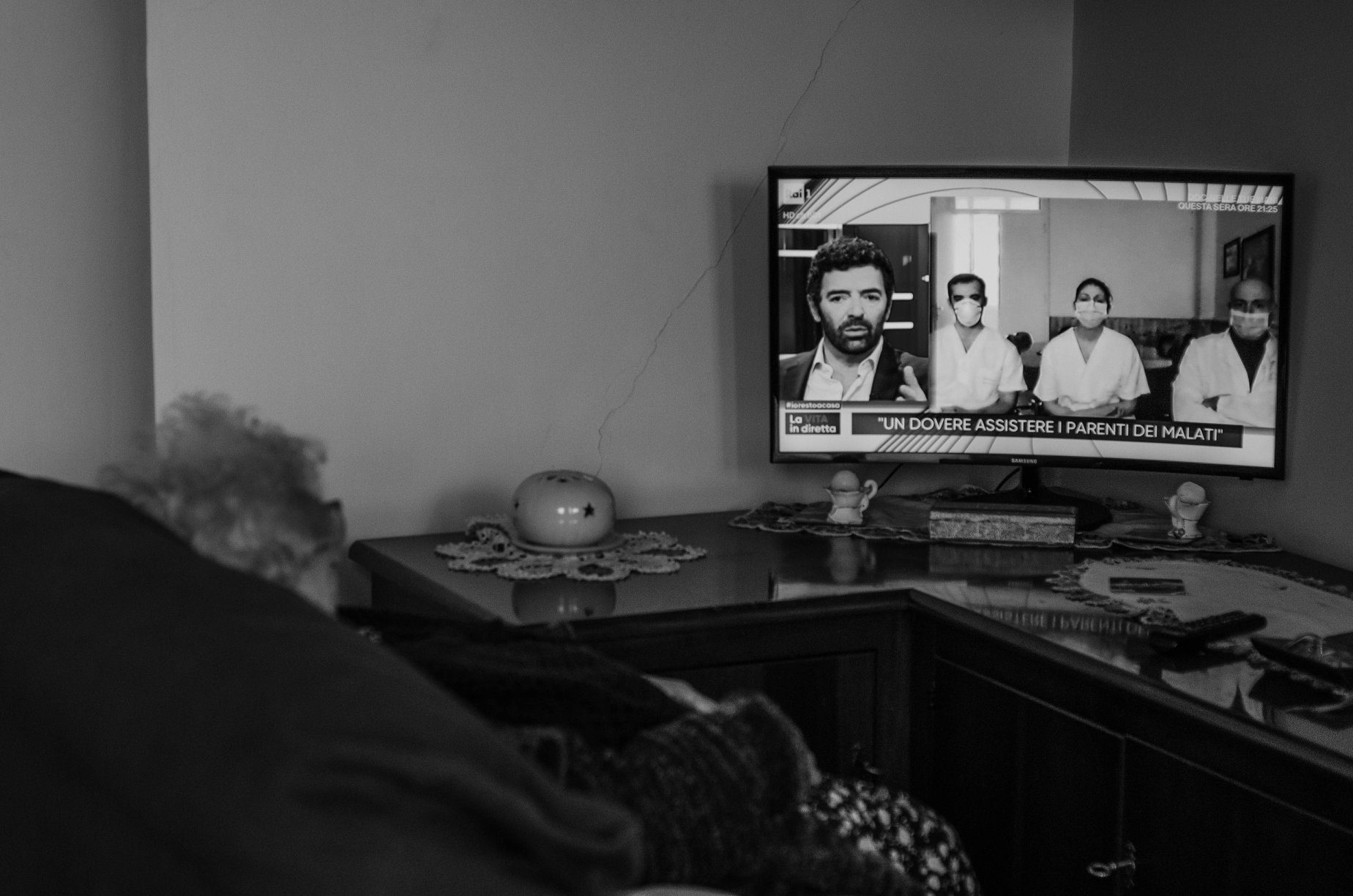
Mother (90-year-old) is staying with me during the quarantine, as lockdown made it very complicated to go outside and visit her, and to give her food and medicine. She is spending most of her time watching news about coronavirus on TV. On the screen, by chance, the caption says “it is a moral obligation to take care of sick people’s loved ones.” The problem is that relatives of sick people are not allowed to take care of them at the hospital. This is a very frustrating situation on both sides. The saddest scenario occurs when someone dies, as this happens in complete isolation.
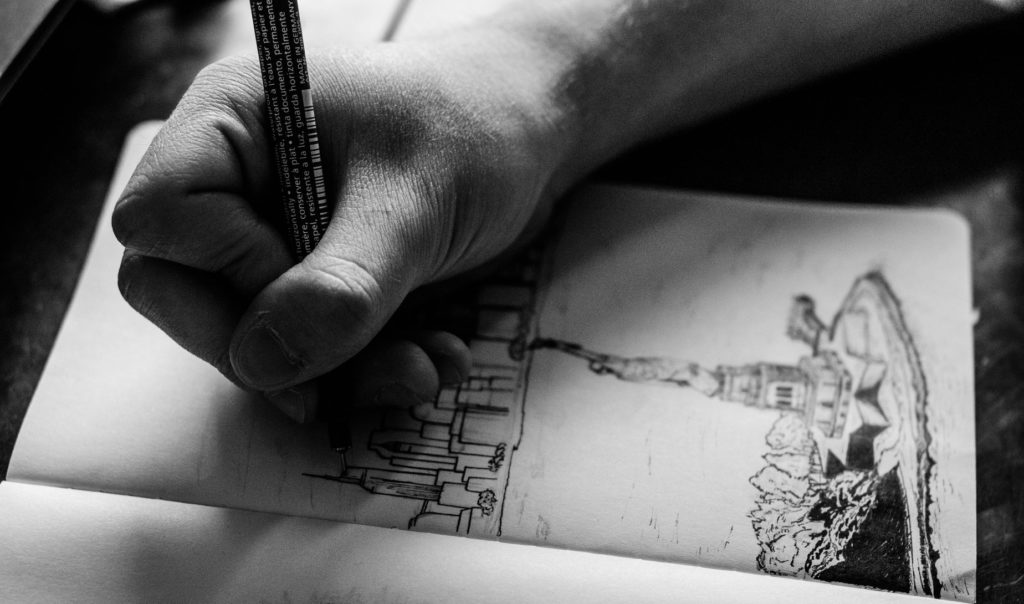
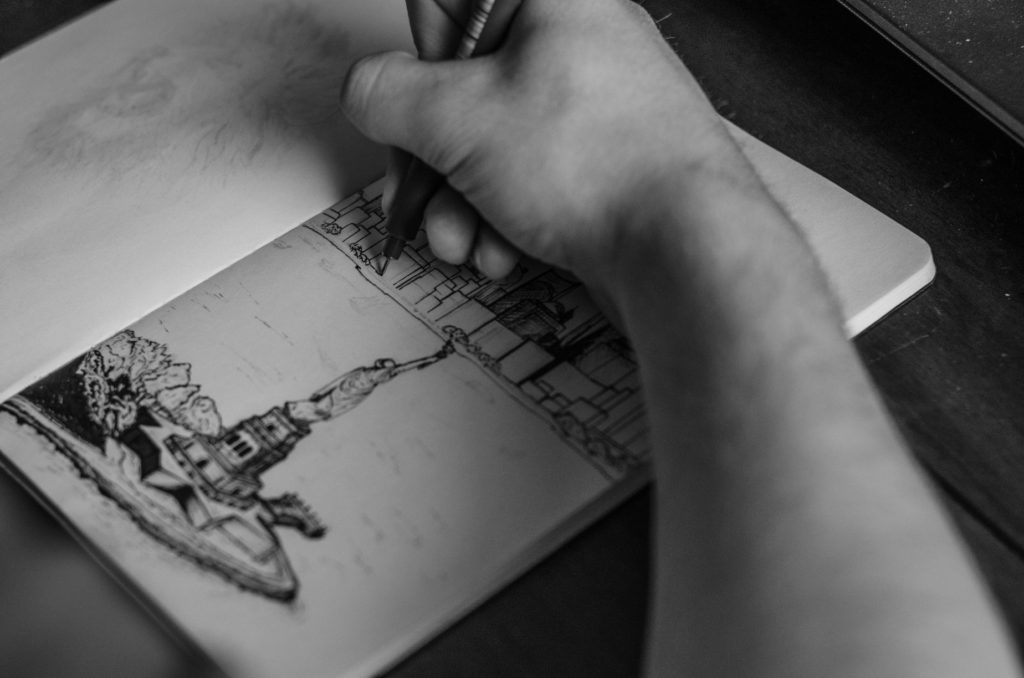
When my son heard about the situation in NYC, he decided to pay homage to the city by drawing the universal symbol of hope and freedom.
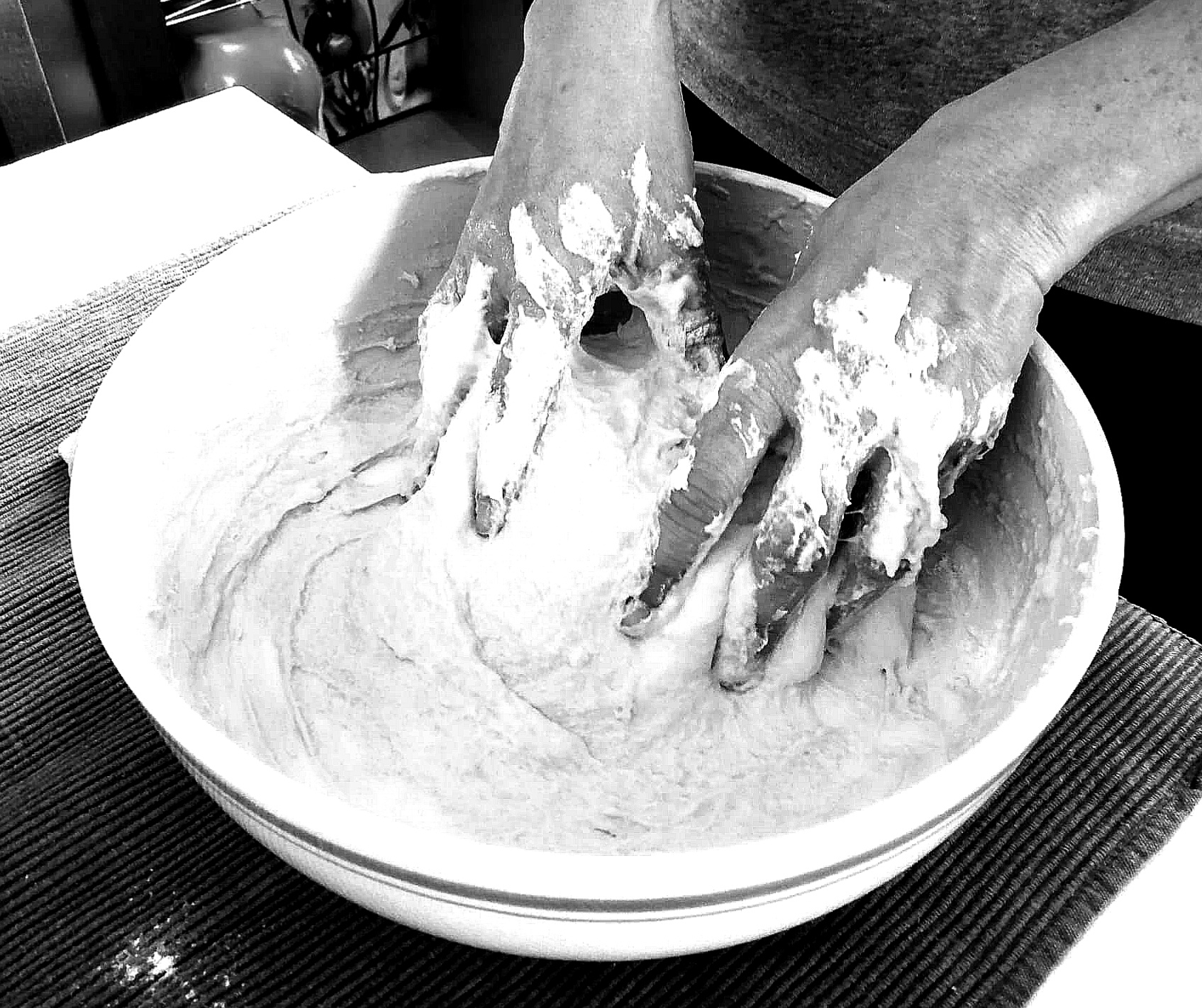
Cooking during quarantine is a way to relax, apparently for many Italians, as yeast and flour are running out in the grocery stores.
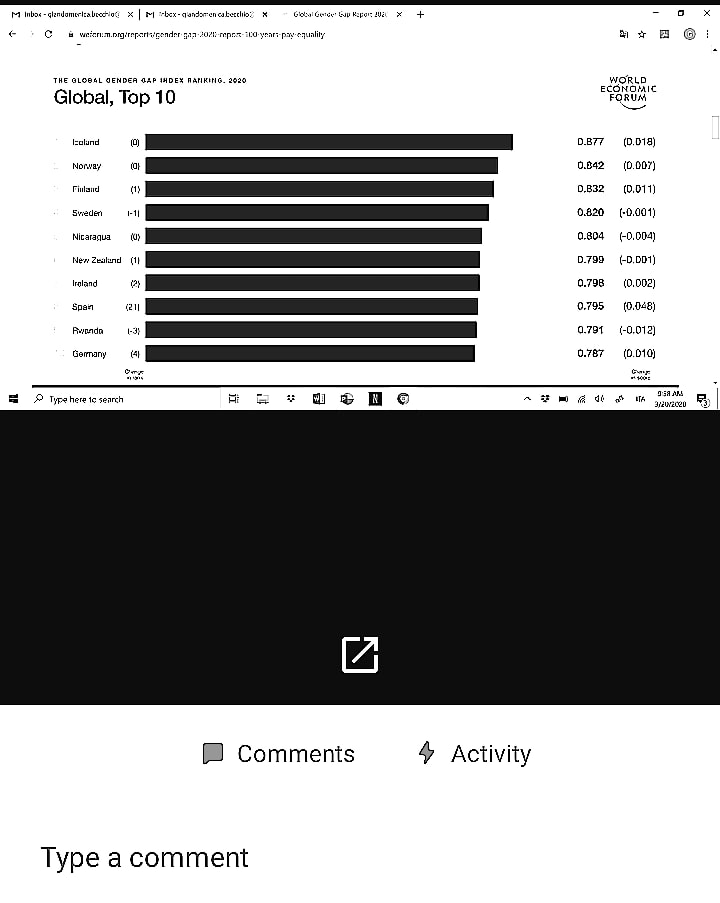
Teaching online…This is part of my course on gender inequality for undergraduate students in economics. I chose to provide the course in asynchronous way — I record my voice on slides, students listen to them and eventually comment and ask questions I will reply to later. This way has some advantages, everyone may use their time as she pleases, but there is no direct communication as in a real class. I chose this method because I have 300 students attending this class, and it was impossible to find a tool able to make live classes possible.
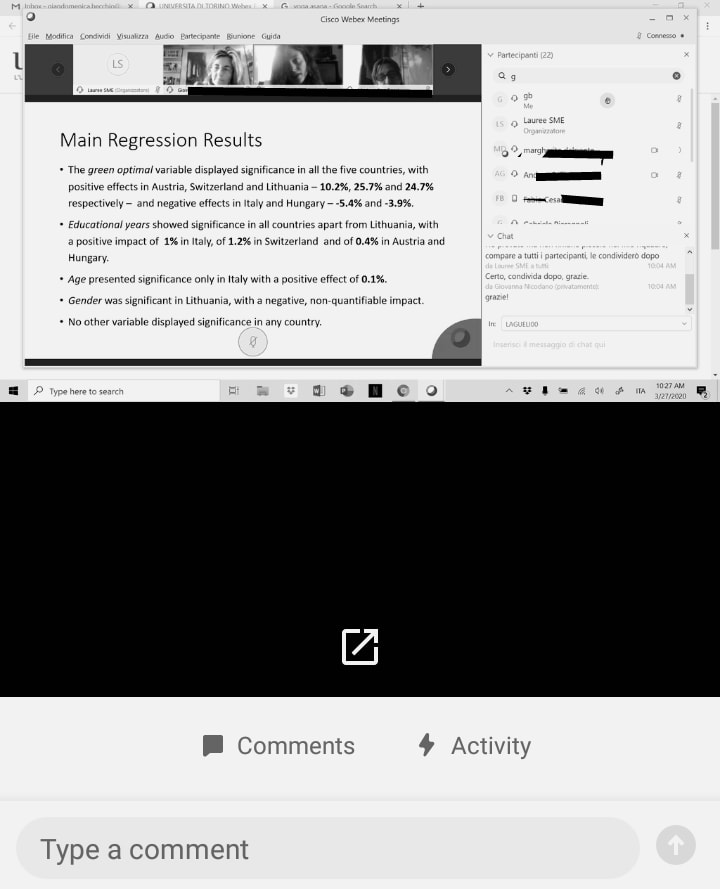
MA thesis discussion online. The candidate is providing slides of her thesis on the green parties in some European countries. Any candidate, as well as any board member of the commission, may talk and eventually chat during the session.
Editor’s Note: This essay will continue for April, 2020